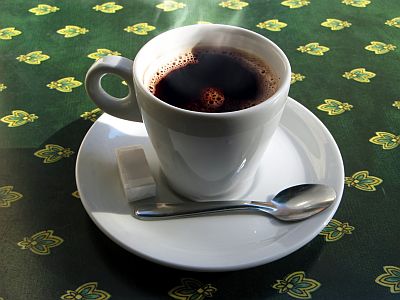Why do I get muscle pain after exercising?

by Elaine Smith
Muscle pain is muscle pain that appears after exercise, and it is characteristic that it becomes painful from several hours to several days after exercise. After experiencing unfamiliar exercise, I may experience muscle pain that makes me worry about getting up from bed, but the expert answers the question "Why on earth will it cause muscle pain?"
Why Do I Get Sore Days After I've Worked Out?
https://www.livescience.com/64146-why-muscles-sore-after-workout.html
Movement of body by exercise and training brings a kind of pleasure, and as soon as it comes out, there will be a desire to "Let's go round one more track" and "Lift a slightly heavier barbell." However, even during the exercise, even if such a feeling of satisfaction is fulfilled, the pain will run in the muscles of the body the next morning, and often regret that "I should have saved it for a while".
Many people have experienced such muscle pain after some exercise. In most cases, muscle pain does not occur immediately after exercise, but appears in a time difference of several hours to several days after the exercise. According to American Sports Medicine College (ACSM), muscle pain that appears after 24 hours from exercise after 72 hours is called "delayed muscle pain (DOMS)" and most of the muscle pain said in the world is slow It is included in the developmental muscle pain. Late onset muscle pain is not caused by any kind of exercise, it appears when you use muscles that you have never moved or when you exercise more violently than usual.
Muscle pain will occur as well as exercise professional or novice. Dr. Michael Jonesco, a sports medicist at Weckner Medical Center at Ohio State University Medical Center , said, "Muscle pain occurred not because you did something wrong during the exercise.When your muscles are extended When it was done, it is a sign that caused some change in your muscles. "

by Pauleon Tan
When exercising, the muscles contract to create force, but muscle contraction causes only small tears in the muscles and adjacent tissues. This small rift does not become a muscle pain as it is, but muscle ache occurs in the process where the body works to repair this rift. Jonesco says "Muscle pain is a byproduct of muscle repair work."
Inflammation occurs when muscle tears occur, and electrolytes like calcium begin to accumulate. According to research published in 2016, the immune system in the body also tries to repair the muscles and a kind of lymphocytes called T cells are sent and penetrated into the muscle rupture. Although scientists have not elucidated the reason why this process causes pain, it seems that it is believed that as soon as a cleft is treated, it also causes pain.
In addition, it is often said that " lactic acid is the cause of muscle pain", but it has also been clarified that lactic acid is not a causative substance for muscle pain. In the 1983 study, many researchers have already confirmed that muscle pain has been confirmed after 2 days even though the level of lactic acid has not increased even after the exercise, such as "muscle pain and There is no fact that muscle fatigue is caused. "

by Aislinn Ritchie
Muscle pain is not a bad thing, it is an indication that my muscles are growing more than before. Some people who like muscle treks say "If you feel sore muscle pain, you can feel the progress of your muscles so you feel good," Jonesco says that repeating the same exercise after muscle pain has occurred It is said that it can not be recommended much because it increases the risk of injury. Instead, Mr. Jonesco says, "By doing very light load exercises, blood flow improves and helps recover damaged muscles."
On the other hand, if you have too intense pain or sustained muscle pain over several days, severe muscle damage may occur and adversely affect the internal organs such as the kidneys. If the pain does not pull or the color of urine is black or brown, it is said that you should see a doctor. However, in most cases muscle pain is a sign that muscles are damaged and recover stronger than before, "If you do not have muscle aches after muscle training, you may have to challenge a more intense load," Jonesco Said.

Related Posts:
in Science, Posted by log1h_ik







